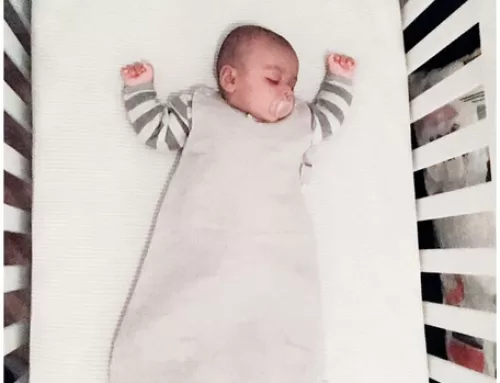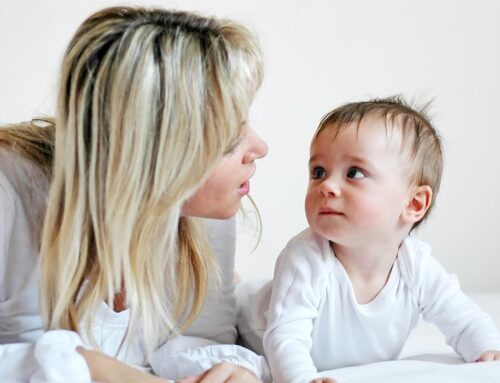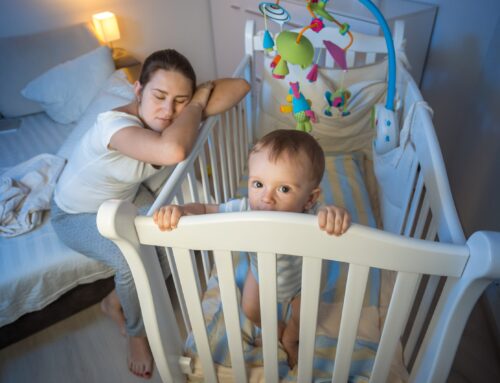Common Sleep Training Questions
Firstly, let’s start by mentioning the obvious: every child is different and will develop at their own pace. If you decide to try something, such as a sleep training method we discuss, remember that what might work for one family might not work for another. It’s essential to find out what works best for your family as a whole.
When should I start sleep training?
In the early days, babies require their parents to notice when they are tired and take them to bed. The parent’s role is to set up a consistent sleep routine and sleep area. They blend into this routine as they grow and can be sleep trained from 4 months or older. Depending on your sleep training method, observe your child to see if they are ready for sleep training and how much or how little help they require to sleep independently and through the night.
How do I transition to a Montessori sleep setup?
You would need to gradually introduce them to the Montessori elements, such as a floor bed and simple décor. You can start with spending time in the new room during the day so they get used to the space. Then move daytime naps to the bedroom with you being present. Later you can move night-time sleep to the bedroom as well. Explain to them that this would be their bed and where they would sleep from now on without other options. Let them explore their new room and be with them whilst they explore, fall asleep with you, and gradually remove your presence. Put up pictures of your family or set up toys or blankets that they are familiar with so they can create points of reference.
How do I handle night-time wakings?
The goal here would be to help your child when necessary and as little as possible. So when your child wakes up at night, first observe and check why. Do they need a change of diaper, or are they thirsty or hungry? Once you have ruled out these, remember how your child fell asleep. Were they being rocked to sleep or fed to sleep? They would look for this when they woke up. Having a consistent sleep routine and sleeping area helps your child a lot when they wake up from a light sleep. They would look at their points of reference and eventually fall back asleep. Some might need extra guidance or reassurance from their parents, such as sitting next to them, rubbing their backs, and talking or singing to them.
What should I do if my child is afraid to sleep alone?
Your child might need a bit more guidance from parents to gain confidence and reduce the anxiety of sleeping alone. Spend more time with them in their room during the day, and give them a chance to explore their surroundings. Pair the bedroom with activities that they really enjoy so they start associating it as a space they enjoy being in. Gradually remove your presence from the room and increase the time your child spends in the room with activities they enjoy. Start with daytime naps and then proceed to night-time sleeping. Again gradually removing your presence from the room.
How much sleep does my baby need?
Every child will develop their own sleep and wake rhythms. In general, the following are wake and sleep windows for your babies –
0-12 weeks – awake for 1 to 1.5 hours with many naps. They need to sleep at least 14 to 17 hours.
3-5 months – awake for 1.25 to 2 hours with 3 to 4 naps a day. They need to sleep at least 12 to 15 hours a day.
5-6 months – awake for 2 to 3 hours with 3 to 4 naps a day. They need to sleep at least 12 to 15 hours a day.
7-14 months – awake for 3 to 4 hours with 2 to 3 naps a day. They need to sleep at least 12 to 15 hours a day.
12 – 16 months – awake all morning, one nap in the middle of the day, and they stay awake until bedtime. They need at least 11 to 14 hours of sleep a day.
What is the best sleep schedule for my child?
Having a consistent sleep schedule is very important and beneficial for the child and the parents. However, the schedule would depend on a number of factors such as your child’s age, sleep needs, environment, and your schedule. By observing your child, establish a sleep routine and be consistent.
How can I help my baby fall asleep faster?
This depends on whether your child is ready to fall asleep at that particular time or not. If they are awake and alert, it would be difficult to get them to fall asleep. It comes down to observing your child again and having a consistent sleep routine and sleeping area. When you have a sleep routine which involves bath time or story time, this will signal to them that it’s bedtime. Additionally, avoid any stimulating activities before bedtime.
How can I get my child to sleep through the night?
The answer to this is to have a consistent sleep routine and sleep area which is calm and without distractions. Reduce night-time feedings gradually and your presence, and encourage your child to sleep longer slowly.
What should I do if my child has trouble sleeping?
Firstly, check if your child has any underlying issues, as it might be causing trouble with their sleep. Talk to your doctor to cross out sleep apnea, nightmares or sleepwalking, etc. Observe your child for anything that might be troubling them. Are they looking for you at night, or are they anxious to fall asleep alone? Are they sleeping a lot during the day, or do you have a consistent sleep routine? Try a small connecting activity with them, such as reading a book or singing to them and then being with them until they fall asleep. Help only when it is required and as little as possible. Eventually, remove your presence from the room.
Is it okay for my child to sleep with a blanket or a stuffed animal?
It is all right for them to have a blanket or a stuffed animal as it is familiar and becomes a point of reference for your child. However, it depends on their age and if they are using it as a pacifier. If your child is a newborn or an infant, follow SID guidelines set by AAP.
My baby wakes up early. What should I do?
This depends on how you react when your baby wakes up early and their environment. First, check if your child is feeling hot or cold, if there is any light coming into the room or if they are hungry. Then check on how you respond to them waking up. Are they taken to your bed when they wake up early? You might have to check and adjust your sleep routine/ schedule and nap schedules. If you make any changes, give it a week or two to see any difference.
I start work soon. How do I prepare my baby for my absence when he goes to sleep or wakes up?
The aim here is to help your child create points of reference. Start by sticking pictures of yourself or your family low enough for your baby to see when they wake up or sleep. Make sure your baby goes to sleep laid on their back in their sleep area instead of rocking the baby to sleep and leaving them.
My baby is showing sleep regression, help!
Babies go through sleep regression at different stages of development, and it’s completely normal. The trick here is to go back to your previous sleep schedule, which was used until they start showing consistency again.
For more information on the Montessori approach to sleep training or the cry-it-out method check out our other blog posts!




